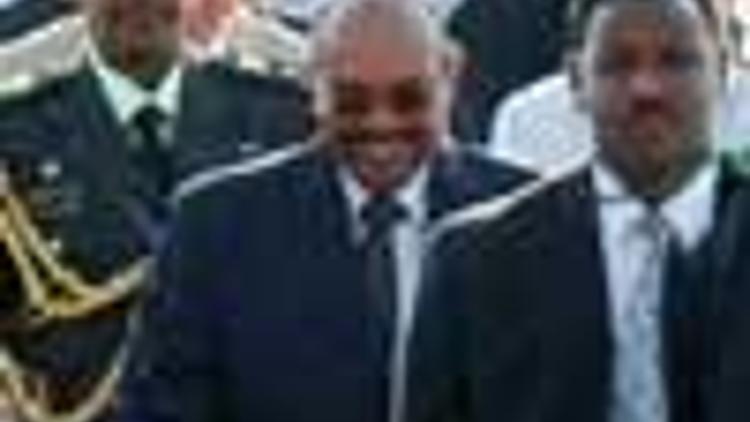Gov’t keeps up Sudan defense
Güncelleme Tarihi:

Hürriyet Daily News
Oluşturulma Tarihi: Şubat 11, 2009 00:002dk okuma
ANKARA - The government has moved ahead with its much-criticized approach toward Darfur with Foreign Minister Ali Babacan stressing the need for leadership by Sudan's controversial president for solving the crisis.
Commentators and activists chided the government for its contradictory stance in addressing rights concerns in Gaza and in Darfur.
The leadership and cooperation of the Sudanese president is needed in order to overcome the problems in Darfur, Babacan told a press conference Monday with his Ethiopian counterpart in Ankara.
"Without this we do not believe the problems will be able to be resolved," he said.
The regime of Sudanese President Omar al-Bashir stands accused of committing genocide in Darfur. The International Criminal Court, which is the world's first permanent war crimes tribunal, is expected to announce its decision shortly over whether it will seek al-Bashir's arrest for his alleged role in atrocities in Darfur.
"I believe the decision must certainly be delayed," said Seyoum Mesfin, foreign minister of Ethiopia.
Political crisis
The visiting foreign minister said seeking a solution to the Darfur crisis by isolating the Sudanese president would not bring any benefits, and that the issuance of the arrest warrant must be delayed at least one year. He said civil war was still unfolding in Darfur, and added the crisis there was a political one.
The problems in Sudan were one of the topics during the meeting of Turkish and Ethiopian foreign ministers.
Turkey came under fire from human rights organizations for twice welcoming the Sudanese president in 2008. Last week, al-Bashir's deputy Ali Osman Mohammed Taha was in Ankara, and talks with the prime minister and Parliament speaker were kept at a low-profile. Press reports revealed Taha was seeking Turkey's support to save al-Bashir from trial in The Hague. Turkey is a nonpermanent member of the U.N. Security Council.
At a press conference, Babacan said Turkey attached importance to Sudan's political unity, territorial integrity and sovereignty and was supporting efforts of the international community for a resolution of the problems, including the one in Darfur.
The leadership and cooperation of the Sudanese president is needed in order to overcome the problems in Darfur, Babacan told a press conference Monday with his Ethiopian counterpart in Ankara.
"Without this we do not believe the problems will be able to be resolved," he said.
The regime of Sudanese President Omar al-Bashir stands accused of committing genocide in Darfur. The International Criminal Court, which is the world's first permanent war crimes tribunal, is expected to announce its decision shortly over whether it will seek al-Bashir's arrest for his alleged role in atrocities in Darfur.
"I believe the decision must certainly be delayed," said Seyoum Mesfin, foreign minister of Ethiopia.
Political crisis
The visiting foreign minister said seeking a solution to the Darfur crisis by isolating the Sudanese president would not bring any benefits, and that the issuance of the arrest warrant must be delayed at least one year. He said civil war was still unfolding in Darfur, and added the crisis there was a political one.
The problems in Sudan were one of the topics during the meeting of Turkish and Ethiopian foreign ministers.
Turkey came under fire from human rights organizations for twice welcoming the Sudanese president in 2008. Last week, al-Bashir's deputy Ali Osman Mohammed Taha was in Ankara, and talks with the prime minister and Parliament speaker were kept at a low-profile. Press reports revealed Taha was seeking Turkey's support to save al-Bashir from trial in The Hague. Turkey is a nonpermanent member of the U.N. Security Council.
At a press conference, Babacan said Turkey attached importance to Sudan's political unity, territorial integrity and sovereignty and was supporting efforts of the international community for a resolution of the problems, including the one in Darfur.

